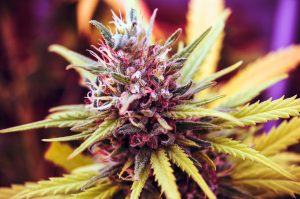With a traditional business mindset and solid entrepreneurial track record, James DeWitt and Michael Wilson could have done just about anything they wanted in life.
[pullquote]
In the Green
Startland takes an in-depth dive into the growing market for CBD and hemp products, and the KC entrepreneurs poised to capitalize on the nationwide trend.
• CBD modern family: Today’s mom-and-pop shop is selling hemp from a downtown OP storefront
• Will CBD get me high? Plus three more burning FAQs about the cannabis cousins
• Evolving attitudes, laws dissolving risks on mainstream CBD, hemp ventures, experts say
[/pullquote]Uniquely bold, each in their own regard, the longtime friends didn’t want to stick to the status quo as they looked for new ventures after their former acts burned down, DeWitt said.
“I was going to go out and do something myself or I was going to be [at my previous job] for a lot longer than I really wanted to,” he said. “I wanted to just do something different. Something I was more passionate about.”
With Wilson previously having launched the Niall luxury watch brand — a startup that made a name for itself on the Country Club Plaza and caught national attention — DeWitt found him to be his best match for planting an unconventional business, in unexplored territory, he said.
Today, you’ll find the pair working the land, growing hemp in Olathe.
“I think we’d both gone through some times in our lives, we’d spent really long work weeks, a lot of hours maybe not being around the family as much as we’d want to be, not having a sustainable kind of lifestyle we would like,” DeWitt said of the duo’s motivation to found United American Hemp — a company built on cultivation and research in the cannabis space.
DeWitt serves as CEO of the venture, with Wilson leading research and development.
“As we continued to explore, we heard about all this craze around CBD and everybody was talking about it and CBD stores were opening up all over,” DeWitt said.
DeWitt and Wilson almost immediately began a deep dive into how the emerging industry — a $32 billion opportunity for entrepreneurs, according to CB Insights — could operate as a sustainable business.
A mix of serendipity and entrepreneurs luck, the state of Kansas happened to be doing the same, DeWitt recalled of the timing.
“In 2017, the state of Kansas passed a statute that allowed for a research program for industrial hemp,” he explained. “You had to have come up with a some type of actual research you’re going to do — you’re allowed to make money off of it, but you have to have some kind of research plan, something that’s gonna add value to deciding whether it’s commercially viable in the state.”
As the state of Kansas navigated its rules for industrial hemp growth, Wilson and DeWitt felt empowered to take a leap of faith and throw their own hard-earned green at the conundrum-inducing crop, he said.
“We don’t have any outside investors. We really care a lot about the research side of it. So our goal here is to get really good at understanding the plant and being able to grow it well, indoors in a climate controlled environment,” DeWitt said.
Click here for your own understanding of the plant and how it differs from marijuana.
Click here to learn about the growing opportunity for marijuana-related startups in KCMO.

James DeWitt, United American Hemp
Investment challenges could possibly be the biggest barrier to entry for growers similar to United American Hemp — an effect of unsteady legislation, DeWitt added.
“I think linking a lot of investment dollars to [hemp and CBD] at this point are risky for the investor and it’s risky for the business,” he shared of his funding philosophy. “Trying to figure out how you’re going to get that return on investment, that’s going to be tough because you don’t even know what the landscape’s going to look like a day from now, you know? [The state] could change that.”
While Kansas laws surrounding industrial hemp growth seem unlikely to backtrack, proceeding with caution is the preferred strategy for United American Hemp if the company wants to expand and accomplish its goal of educating consumers, DeWitt said.
“We’re starting small, understanding what we’re doing, financing ourselves … and doing it at a scale and pace that matches what’s going on in the market,” he said.
Already in high demand, the need for hemp will only grow stronger as legislation and awareness catch up, DeWitt said.
When such a time comes, United American Hemp will be ready, he added, confident in his company’s ambition and abilities.
“It’s an interesting space because most of the people that are getting into industrial hemp or CBD have never really touched a living, growing cannabis plant,” he said. “They’ve never grown it. They don’t understand what that is.”
Growing hemp is more about planting roots than seeds, DeWitt said, eager to till new ground for growers — emerging from a modern day Prohibition — who could harvest in the heartland for generations to come.
“Just like with any emerging industry, there are ways you can get in there and just get to making money right away,” he said. “But for us — if we’re looking at building a sustainable long term business — I think the education and the research pieces are just as vitally important to understand what you’re doing and where the industry could be going and be at the forefront.”
Keep reading
• CBD modern family: Today’s mom-and-pop shop is selling hemp from a downtown OP storefront
• Will CBD get me high? Plus three more burning FAQs about the cannabis cousins
• Evolving attitudes, laws dissolving risks on mainstream CBD, hemp ventures, experts say







































